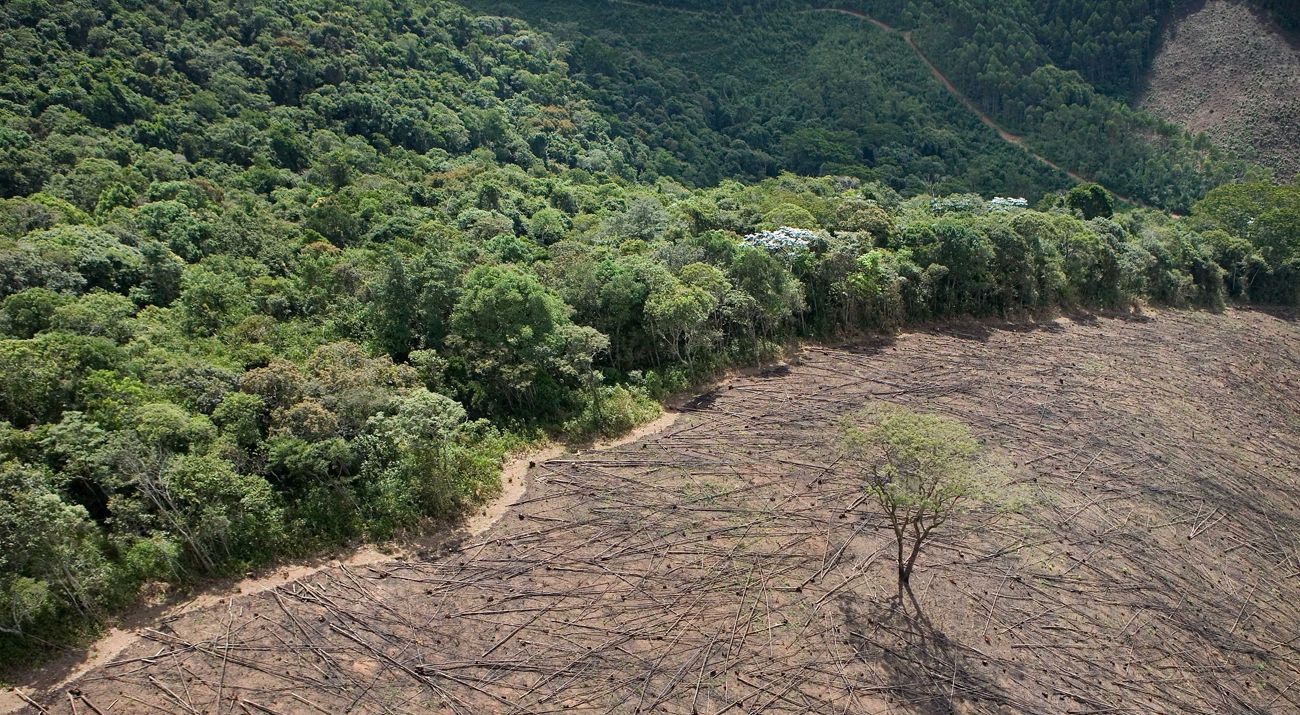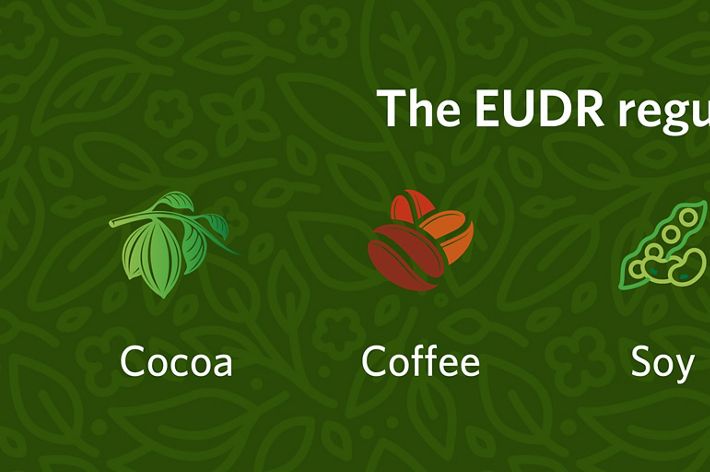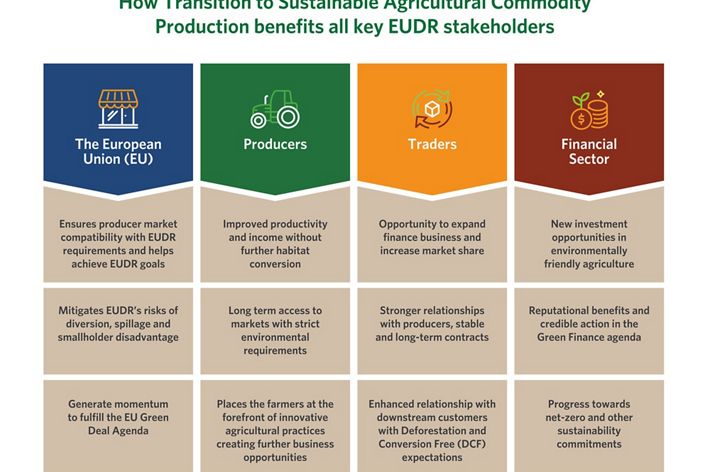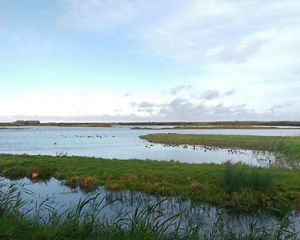The EU’s New Deforestation Law Needs to Engage Producers from the Get-Go
One key provision in the new law could be the first step to revolutionize global agriculture practices away from deforestation.
Matthew Sielski
From December 2025, consumers in Europe who are eating Argentinian beef or drinking Ugandan coffee will rest assured that their products were produced without deforestation—all thanks to the world’s most ambitious zero-deforestation trade law.
The EU’s new deforestation regulation (EUDR) ensures that seven commodity products—soy, beef, palm oil, wood, cocoa, coffee and rubber, all of which are major drivers of deforestation—will no longer be sold in the EU if sourced from areas affected by deforestation or forest degradation practices.
These commodities and associated products will soon be required to undergo strict mandatory due-diligence checks when entering the EU to demonstrate they have not been sourced from areas affected by deforestation or forest degradation.
Agricultural production is by far the main driver of global deforestation, accounting for 80% of total forest conversion. The growing demand for agricultural commodities internationally continues to drive agricultural land conversion in the countries that produce these commodities. The EU alone is responsible for importing products that account for approximately 13-16% of deforestation associated with global trade, resulting in 203,000 hectares of cleared forests and 116 million tonnes of CO₂ released into the atmosphere. The new EUDR regulation therefore is crucial in addressing the EU’s deforestation footprint, as well as signalling to the private sector and other consumer markets that deforestation-free supply chains are on their way to becoming the new normal.
Yet, as always, the devil is in the details, and the EUDR has lots of them.
The key to successful implementation of the EUDR lies with Article 30, a provision on cooperation with commodity producer countries such as Brazil, Argentina, Uganda, Indonesia and many more. Article 30 aims to cooperate with producer countries to address the root causes of deforestation, while assisting with compliance to the new regulations. While the details for implementation of Article 30 are under discussion, our new policy brief shows that Article 30 presents an opportunity for the EU to utilise it as a key legislative mechanism to accomplish three important outcomes:
- Enhance effectiveness – Article 30 can support the overarching objectives of the regulation by deploying support measures in areas where the EU has traditionally held the biggest deforestation footprint. These measures would back sustainable land use and traceability initiatives to ensure permanent change in most affected areas and consequently helping EUDR achieve its goals.
- Mitigate risk – Cooperation measures should address ongoing risks to the regulation, including the prospect of redirecting deforested products away to other markets or the disproportionately difficult transition for smallholders leading to their exclusion from the EU market.
- Generate global momentum – Future cooperation mechanisms can be used to encourage broader investment and support from governments and private sector to end agricultural driven deforestation.
The EU can seize the opportunities created by Article 30 to transform agricultural production and increase supply chain transparency to eliminate deforestation.
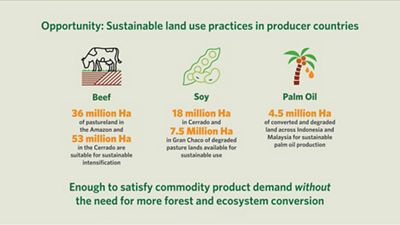
For decades, The Nature Conservancy has been at the forefront of promoting zero conversion commodity production, working together with producer country governments, supply chain companies, financial institutions and other civil society organisations to generate significant private sector investment to halt habitat conversion caused by commodity production. Our experience has shown us that viable and achievable pathways for this transition exist, whether through increasing the efficiency of existing agricultural lands or diverting production to underutilised and degraded lands. There are a number of new and innovative agricultural practices which, if applied at scale, can effectively maintain current production levels and meet global commodity demand without the need for further cut of forests or other ecosystem conversion.
Unfortunately, commodity producers still face significant barriers, including institutional, economic and technological challenges, when attempting to shift towards these alternative options. Additionally, investor confidence in these alternatives remains relatively low. Article 30 can therefore act as a cooperation mechanism that bridges these gaps, complimenting the EUDR’s core regulatory requirements with support and investment measures to explore and support these opportunities.
Enhancing traceability capacity is another key element of creating deforestation-free supply chains, ensuring transparency and clarity for governments and private sector alike. Under the new regulation, agricultural commodities are required to be traceable back to the area of production, demonstrating that the commodity was not cultivated due to deforestation. This is logistically difficult, as commodity supply chains are often fragmented and involve multiple actors. Furthermore, the traceability requirements may be difficult to meet for farmers without basic technological capacity.
Fortunately, we have seen an increasing emergence of traceability and monitoring platforms for key commodities like beef, soy or cocoa, bringing together key stakeholders involved in the industry to establish effective traceability regimes. The EU can utilise Article 30 to support the development of such platforms, consequently enhancing producer countries capacity to comply with the regulation while accelerating the transparency needed to address deforestation at its core.
Article 30 also has the potential to transform relationships between the EU and producer countries.
Institutional, financial and technical focus on supporting better land-use and sustainable production brings with it several mutually beneficial outcomes for all stakeholders along the supply chain.
As part of EUDR implementation, the EU will shortly establish a Strategic Framework for engagement with producer countries, outlining the details on implementation of Article 30 and the policy instruments it will utilise to do so. This is a great opportunity for the EU to recognize Article 30 as the key legislative mechanism for the successful implementation of the legislation as a whole. Even with relatively modest resources used for a targeted and strategic approach, the implementation of Article 30 can establish productive engagements with key producer country actors and generate further momentum in transition to sustainable agricultural practices.
Our Recommendations
To complement the development of the Strategic Framework, TNC has developed a policy briefing serving as a general guideline on the development of this important work and the implementation of Article 30.
Read the full report
-
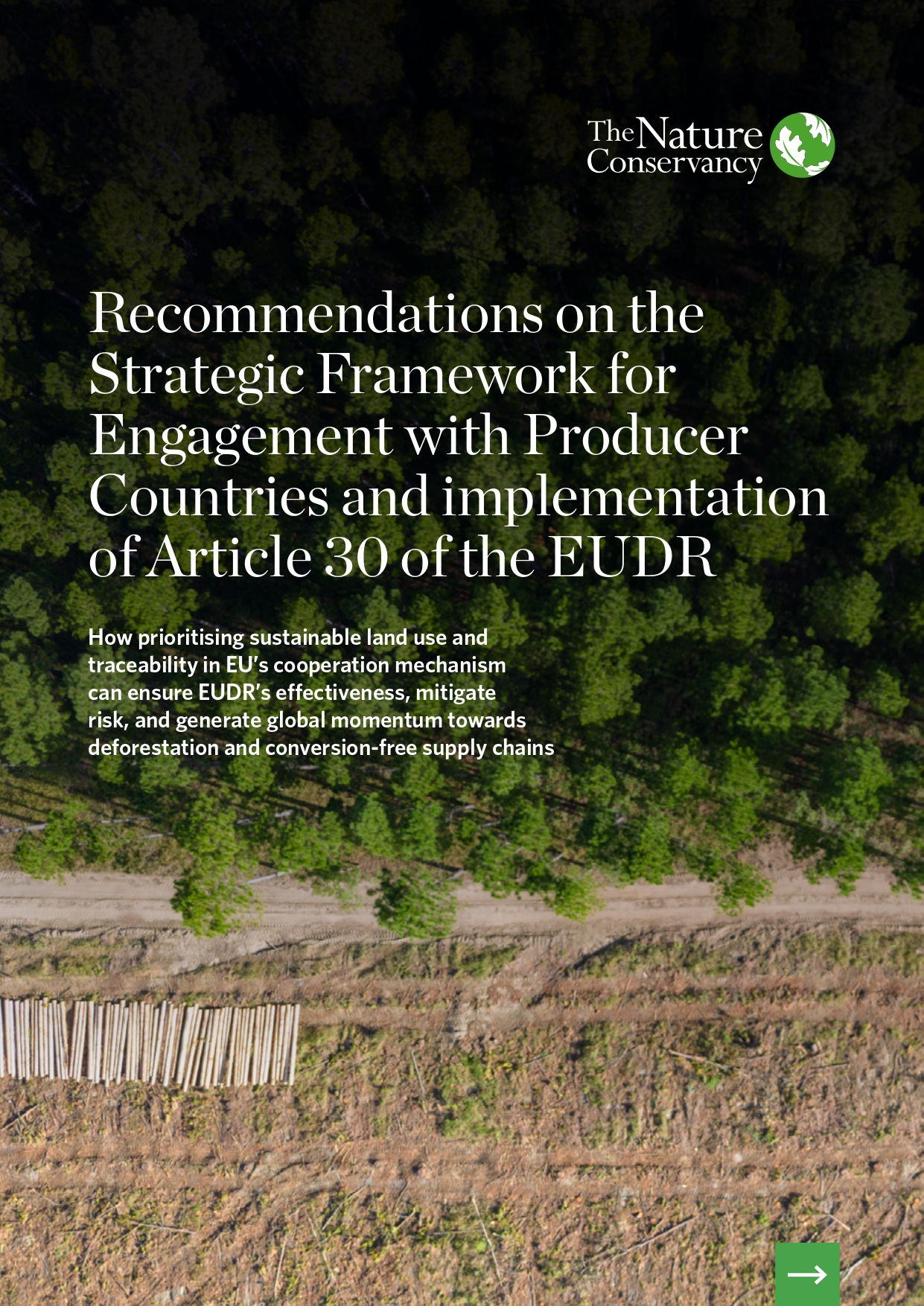 Recommendations on the EUDR Strategic Framework
Recommendations on the EUDR Strategic FrameworkHow prioritising sustainable land use and traceability in EU’s cooperation mechanism can ensure EUDR’s effectivenes.
DOWNLOAD
Check out our recent paper
-
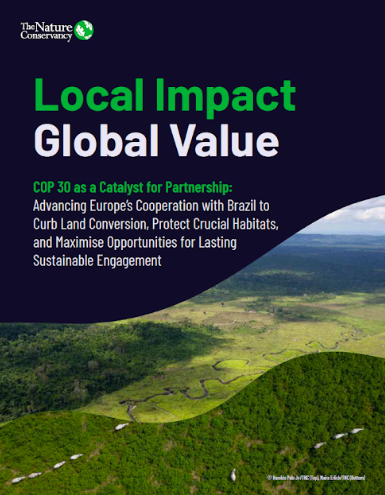 Local Impact - Global Value
Local Impact - Global ValueCOP30 as a catalyst for partnership: Advancing Europe’s cooperation with Brazil
DOWNLOAD
Sign up for TNC’s Global Insights newsletters
Real-world solutions to the most complex challenges facing people and nature today.
Get our newsletters